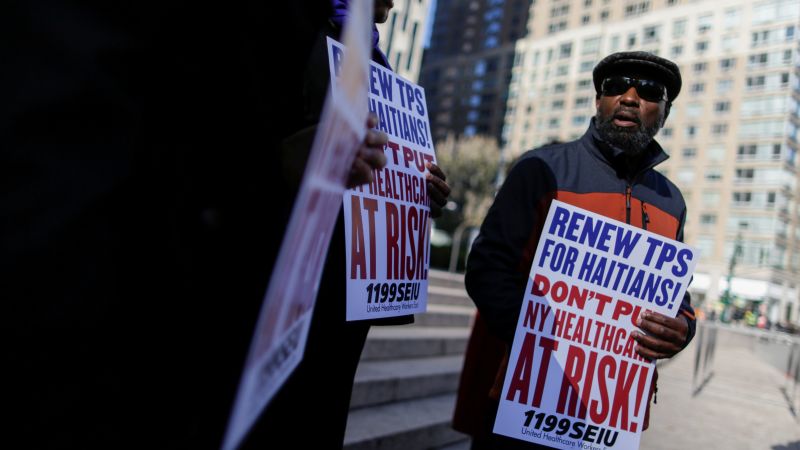A federal judge in Brooklyn has blocked the Trump administration’s attempt to prematurely end temporary protected status (TPS) for Haitian migrants. The decision, issued by U.S. District Judge Brian Cogan, found that the Department of Homeland Security (DHS) violated legal procedures in its haste to revoke deportation protections and work permits from over half a million individuals.
The ruling follows DHS Secretary Kristi Noem’s move to rescind an 18-month extension of Haiti’s TPS designation, initially granted by former President Joe Biden. This extension was set to last until February 3, 2026. However, the Trump administration sought to curtail this period, first proposing an end date of August 3, before revising it to September 2. Judge Cogan’s decision emphasized that Secretary Noem did not adhere to the congressional timeline and procedures, which require a thorough review of current conditions in Haiti before terminating TPS.
Legal and Procedural Violations
Judge Cogan’s ruling highlighted significant procedural oversights by the DHS. In his decision, he stated,
“Secretary Noem does not have statutory or inherent authority to partially vacate a country’s TPS designation; her partial vacatur must be set aside as unlawful under the Administrative Procedure Act.”
The judge further noted the immediate and severe impact on the plaintiffs, stating,
“Plaintiffs’ injuries are actual and imminent. They cannot be remedied by an award of money damages. If the partial vacatur remains in effect until the final resolution of this case, plaintiffs will lose their right to live and work in the United States based on what the Court has already found was an unlawful action.”
CNN has reached out to DHS for comment, but no response has been received at the time of publication.
The Lawsuit and Its Implications
The lawsuit, initiated in March by nine Haitian TPS holders and advocacy groups, including the Haitian Evangelical Clergy Association and Service Employees International Union 32BJ, argued that the abrupt rollback disrupted lives and forced families to face deportation far sooner than expected. Judge Cogan, appointed by George W. Bush, indicated that the plaintiffs are likely to succeed on the merits of their case. He ordered the government to maintain Haiti’s TPS designation until at least February 2026, unless it is lawfully terminated.
This ruling does not preclude DHS from ending the designation in the future, provided it complies with statutory requirements. A related case, Haitian Americans United Inc. v. Trump, is currently proceeding in federal court in Massachusetts, presenting similar claims.
Historical Context and Expert Opinions
The issue of TPS for Haitian migrants has been a contentious topic in U.S. immigration policy. Temporary Protected Status was first granted to Haitians following the devastating earthquake in 2010, which left the country in a state of crisis. Since then, political instability and natural disasters have compounded Haiti’s challenges, making the return of migrants a complex humanitarian issue.
Experts in immigration law argue that the Trump administration’s approach reflects a broader pattern of attempts to roll back TPS for various nationalities. According to immigration attorney Sarah Johnson,
“The administration’s actions seem to disregard the humanitarian intent behind TPS. The legal framework is designed to protect individuals from returning to dangerous situations, and bypassing these procedures undermines that protection.”
Looking Ahead
The decision by Judge Cogan underscores the importance of adhering to legal protocols when making significant changes to immigration policy. While the ruling provides temporary relief for Haitian migrants, the broader debate over TPS and its future remains unresolved.
As the case continues to unfold, the implications for other TPS holders from different countries could be significant. Legal experts suggest that this decision may set a precedent for how similar cases are handled, emphasizing the need for a comprehensive review of conditions in countries before altering TPS designations.
Meanwhile, advocacy groups continue to push for more permanent solutions for TPS holders, highlighting the contributions these individuals make to the U.S. economy and society. The ongoing legal battles and policy discussions will likely shape the future of TPS and broader immigration reform in the United States.
